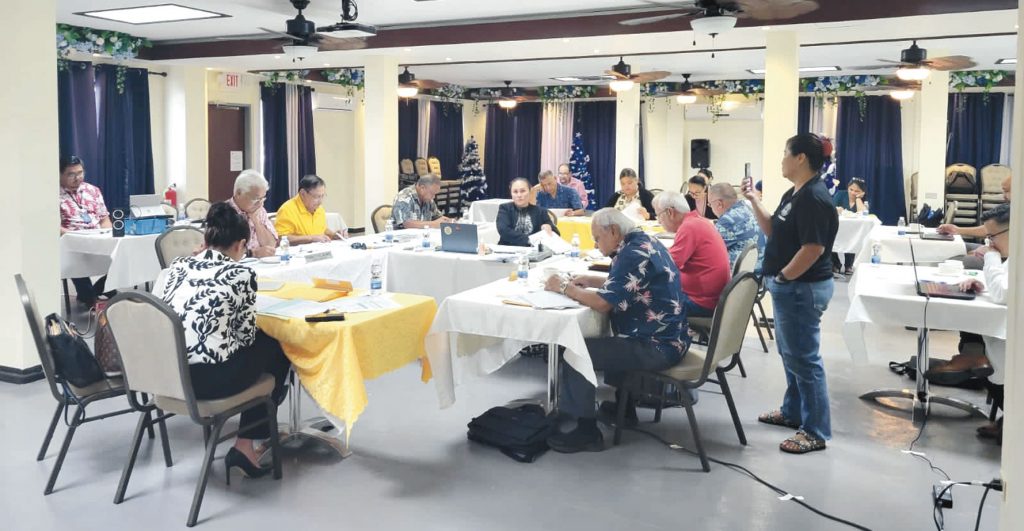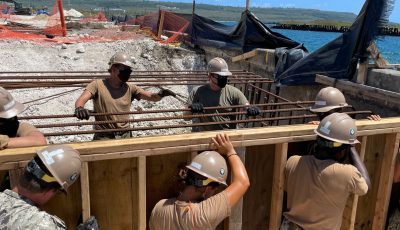CPA vetting if some employees can be exempted from pot drug testing

The Commonwealth Ports Authority held board committee meetings yesterday on Tinian. (CONTRIBUTED PHOTO)
The Commonwealth Ports Authority is vetting whether certain classes of CPA employees may be exempted from the required cannabis drug testing.
During a CPA board meeting on Tinian yesterday, one item on their agenda was CPA’s drug policy and whether or not it is feasible for certain employees to be exempted from being tested for cannabis.
“What we’re considering right now is differentiating between safety sensitive employees and law enforcement, versus non-safety sensitive employees,” said CPA board chair Kimberlyn King-Hinds in a phone interview after the meeting.
Currently, CPA tests all their employees for cannabis use, as well as for illegal drugs such as cocaine, amphetamines, opiates, and PCP.
King-Hinds assured that no CPA employee is ever allowed to be under the influence of any substances while on the job, but what CPA is vetting for is whether or not to drug test employees who use cannabis on their own time, as cannabis does stay in the system for a while.
“I think that there are a lot of people who suffer from various ailments and there’s a lot of people who use cannabis to find a certain type of relief. For whatever reason, whether it be chronic illnesses or just mental health issues, to me, it’s better than alcohol. As long as you’re not coming into work under the influence, I think people should be free to do certain things in their own private time,” said King-Hinds on what she thought of this policy they are vetting.
Another thing the CPA is looking at is whether it’s feasible to go about this route and whether or not it will impact federal funding.
“If it impacts federal funding at all, then this is not a policy that we will be adopting. But if there is no impact—and obviously we’re going to test for meth and all those other illegal substances, but for marijuana since it’s legal, we could eliminate that for non-safety sensitive employees. But if it impacts our federal grant insurance requirements, then we will not pursue it.
As it is in its preliminary stages of discussion, it’s also a discussion that CPA will need to have with the Department of Transportation and the Federal Aviation Administration.
As to why it was raised at the meeting, King-Hinds said it was requested by a board member and that “society is changing. The use of cannabis is becoming very similar to alcohol consumption. There’s no prohibition from you drinking alcohol, but there’s a prohibition from you being drunk on the job. The idea basically is to treat it similar to that, but only for [CPA] employees who are not in law enforcement, [or are safety sensitive employees]…”
“This is just a sign of the times. We continue to evolve, to change.” King-Hinds did note that cannabis is a sensitive issue to some people who may have different views on it, but that since the community voted to legalize the use of cannabis for medicinal and recreational use, “it’s time to move forward and start destigmatizing [it].”
According to King-Hinds, this cannabis policy is on the list of their progressive policies, along with their recent policy that aims to completely deter the agency from emitting greenhouse gases by year 2050, and their self-care leave policy for employees that was implemented last year.
“Those are policies that I think are very progressive, and this new policy that addresses cannabis consumption is another one that’s going to be added on to that list, but obviously this needs to be fully vetted by our federal partners,” said King-Hinds.



























